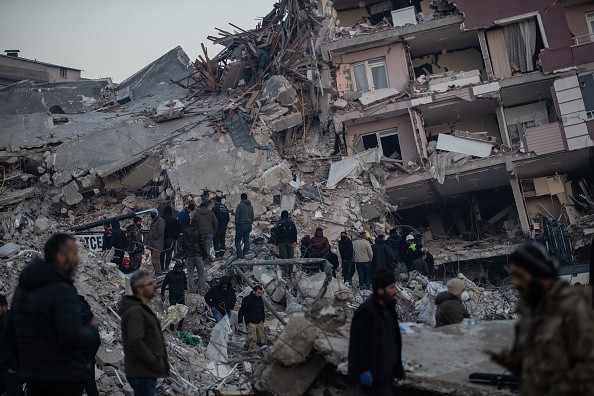Earthquake preparations are essential to prevent injuries and casualties.
The impact could become widespread, and every second matters.
No one knows when an earthquake will strike. Scientists have found it challenging to precisely locate and notify communities of coming earthquakes.
The world was shocked after a powerful magnitude 7.8 earthquake hit Syria and Turkey. The images and videos of the earthquake's aftermath were catastrophic.
CNN reported that many families were still trapped under the rubble of collapsed buildings.
The rescue and operations have become more chaotic due to cold conditions and damaged roads.
In the latest news, Reuters reported that the total death toll reached about 20,000.
Thousands of injuries were reported and under the shelter amidst the challenging cold.
Earthquake preparedness

According to the World Health Organization (WHO), earthquake is life-threatening. The impact could unload devastating damage to communities.
As a result, disaster preparedness has been crucial to plan for possible natural disasters, from tsunamis, earthquakes, flooding and tornadoes.
In the United States, Americans are no strangers to extreme disasters.
While it is true that earthquakes could strike without notice, preparedness can help homeowners to stay safe.
Here are important safety reminders during and after the earthquake event.
Check if your home if it is in the earthquake's fault lines.
Communities or residents within the fault lines are more prone to powerful earthquakes. Homeowners should understand whether their home is in the area of fault lines.
Yearly monitoring of your home for possible damages and repairs is crucial. In the U.S., tornado outbreaks, heavy snow, flooding, rain and strong winds can impact your home.
Homeowners should ensure that their homes follow the recommended building codes.
According to NPR, homeowners should secure their furniture from shelves, frames and fragile items. It would help so it would not fall when an earthquake jolts.
Duck, Cover and hold .
It is one of the first steps to remember during an earthquake event. Cover your head for possible debris, and look for a sturdy area you can temporarily shelter.
Stay away from trees, power lines and fragile materials.
Disaster preparedness.
Homeowners should orient their family members for disaster preparedness during an earthquake. It is essential to stay calm.
Emergency bags and supplies
Homeowners should keep an emergency bag for evacuations and supplies for home.
Earthquakes can damage power lines and main roads. It would become more challenging for homeowners to buy essential food and water.
The emergency supplies include bottled water, medicines, batteries, radio and non-perishable goods.
NPR said homeowners should consider keeping digital copies of primary documents if earthquakes destroy their homes.
After the earthquake
The aftermath of the earthquake can be widespread. Before you leave your house, be mindful of debris.
Be careful with downed trees and power lines. A gas leak can be possible and harmful to health.
Check the health situations of your family members, and those who need immediate medical attention.
Related Article : Syria, Turkey Earthquake Update: Challenging Cold, Heavy Snow Continues Affecting Rescue Operations
For more news, don't forget to follow Nature World News.
© 2026 NatureWorldNews.com All rights reserved. Do not reproduce without permission.





